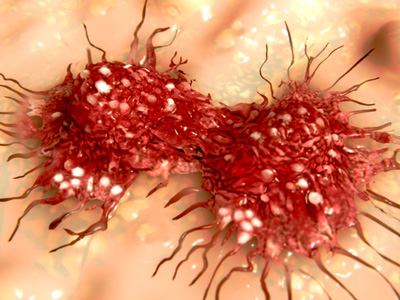Researchers noticed vital upregulation of Siglec-15 within the tumour microenvironment in bone tumour samples from breast most cancers sufferers.

Scientists within the lab of the chemist Dr Han Xiao at Rice College have recognized a brand new immunological pathway to deal with bone tumours, considered one of most prevalent types of metastases in breast most cancers sufferers.
Lead creator Dr Yixian Wang, a Rice graduate scholar within the Han lab, defined: “Greater than 70 p.c of individuals with metastatic breast most cancers will see the most cancers cells transfer to bone, which may result in skeletal-related occasions like bone ache, fractures, and hypercalcemia.” He highlighted: “There at the moment are a number of immunotherapies that may doubtlessly profit breast most cancers sufferers with metastases, however they aren’t efficient in sufferers with bone tumours.”
Siglec-15
New immunotherapies named checkpoint inhibitors can reveal tumours, enabling immune cells to fight the irregular cells. Nonetheless, though checkpoint inhibitors are efficient for a lot of sufferers, they don’t work for everybody. Medical trials have demonstrated little to no response when used to deal with bone metastases. Subsequently, Dr Xiao and his crew aimed to find one other pathway that is likely to be simpler in destroying them.
Dr Xiao defined: “We thought there have to be one other novel checkpoint axis we might goal for the breast most cancers cells in bone…And we found a singular glyco-immune checkpoint axis in bone metastases that includes a protein referred to as sialic acid-binding Ig-like lectin (Siglec)-15. We realized that it suppresses immune cells within the bone.”
The crew noticed a major upregulation of Siglec-15 within the tumour microenvironment (TME) in bone tumour samples from breast most cancers sufferers. They then demonstrated that this receptor performs a key function in hiding bone tumours from the immune surveillance.
“Present FDA-approved checkpoint inhibitors are mediated by protein-protein interactions that suppress immune cells,” Dr Xiao detailed. “Siglec-15, nevertheless, is a glyco-immune checkpoint inhibitor. As an alternative of binding to a protein, Siglec-15 binds to the sugars you discover on the cell surfaces ⎯ and that’s the way it can suppress the immune system. That is a completely new kind of immune checkpoint that gives nice promise for future remedy for bone cancers.”
The crew performed a number of cell tradition experiments to review Siglec-15 interactions within the bone TME, and found it’s concerned in crosstalk between tumour cells and demanding immune cells like T-cells and macrophages, in addition to bone-specific cells, osteoclasts.
Glycolipids and glycoproteins may be discovered on all cells and play an essential function in immune modulation. Dr Xiao added: “These findings supply us a possibility to review these glyco-immune checkpoint inhibitors extra in depth and determine these that may assist bone tumours cease evading immune recognition.”
Antibody remedy
Merely modulating the behaviour of Siglec-15 could possibly be sufficient to deal with bone metastases. A robust immune response was triggered when the crew injected a monoclonal antibody that targets Siglec-15 into an animal mannequin of metastatic breast most cancers with bone tumours. The tumours lowered after just one or two doses of the antibody remedy.
Dr Wang concluded: “I’m very excited concerning the potential therapeutic consequence for a remedy like this. This could possibly be a really useful remedy for breast most cancers sufferers sooner or later.”
The scientists will proceed to review the brand new and distinctive biology of glyco-immune checkpoint pathways within the TME, as these pathways might present insights to enhance present and future immunotherapies. Moreover, Dr Xiao want to see if focusing on Siglec-15 is likely to be useful in treating different kinds of cancers that have an effect on bone.
The research was revealed within the Proceedings of the Nationwide Academy of Sciences (PNAS).

